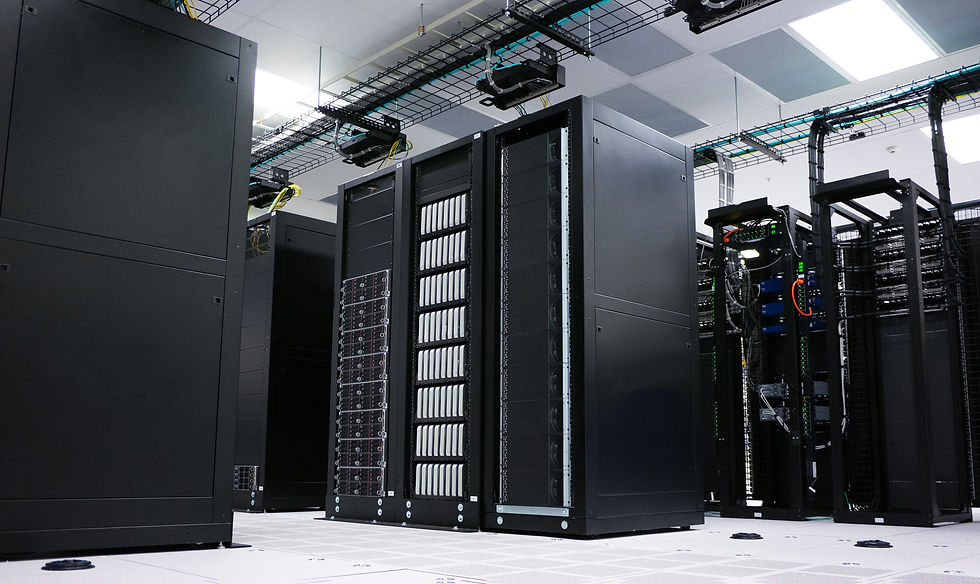Malaysia Supporting Digitalization with Data Centers
- Jun 28, 2024
- 3 min read

Expansion of the Data Center Market in Southeast Asia
The global data center market size is projected to exceed 1.7 trillion yen by 2022. A data center is a facility where companies store and manage IT equipment such as servers. There are two primary forms: storing a company's IT equipment and renting servers from the data center. The background of this market expansion includes the global spread of cloud services, the increasing use of video and audio content, and the rising communication volume driven by the progress of 5G. As digitalization advances worldwide, the market is expanding.
This increase in data center demand is also being observed in Southeast Asia. The market size of data centers in Southeast Asia is expected to have an annual growth rate of 13% from 2019 to 2024, making it the fastest-growing region globally, according to a major real estate consulting firm. The rapid digitalization and growing demand for cloud computing in Southeast Asia are the driving factors behind this growth. In the Southeast Asian data center market, Singapore is competitive due to its stable internet environment, power supply, and political stability. However, Malaysia is emerging as a notable market. Malaysia hosts over 20 colocation data centers, and the market is predicted to receive an investment of $140 million by 2026.
Malaysia's Data Center Competitiveness: Low Costs
Malaysia is chosen for its features such as low risk of natural disasters, well-developed infrastructure, and notably low operational costs for data centers. The commercial electricity rate per kilowatt-hour is approximately $0.258 in Singapore but only about $0.093 in Malaysia, more than twice the difference. NTT Communications has three data centers in Cyberjaya, an IT special zone in Kuala Lumpur. The decision was driven by the extremely low risk of natural disasters such as earthquakes and tsunamis, stable public infrastructure, and lower electricity rates and labor costs compared to neighboring countries. KDDI, in partnership with local data center operators, offers data center services, with a facility located in the city center of Kuala Lumpur, making it more accessible for IT staff and vendors than suburban locations. Lower costs for electricity and other expenses allow for securing such prime locations.
Malaysia 'MyDIGITAL' National Strategy
The expansion of Malaysia's data center market is backed by a national policy focusing on digitalization for economic development. Prime Minister Muhyiddin Yassin announced the "MyDIGITAL" initiative in February 2021, aiming to transform Malaysia into a high-income and leading nation through digitalization. This plan emphasizes the digital sector as a key driver of future economic growth, projecting that the digital economy will contribute 22.6% to the national GDP by 2025 and create 500,000 new jobs. As part of this initiative, about 44 billion yen (1 ringgit = 27.44 yen)
will be invested by telecommunications companies by 2023 to enhance connections to international cable networks, with ten times this amount planned over the next decade to support the nationwide rollout of 5G. In April 2021, Microsoft announced the establishment of multiple data centers in Malaysia, indicating a move to strengthen its cloud business.
Transcosmos, an IT outsourcing company, formed a capital and business alliance with Soft Space Sdn Bhd, a Malaysian cloud-based data center operator, in 2017, jointly developing customer management systems for mobile payment services. Given the anticipated market expansion in the digital sector, the number of mergers and acquisitions (M&As) involving data centers continues to increase globally. In Malaysia, data centers are expected to become a crucial area supporting the digital economy, including 5G and IoT.
Thank you for reading to the end. For inquiries about the content of this article, information on M&A projects and partner candidates in related industries, or market research consultations, please contact the person in charge or use the inquiry form.




Comments